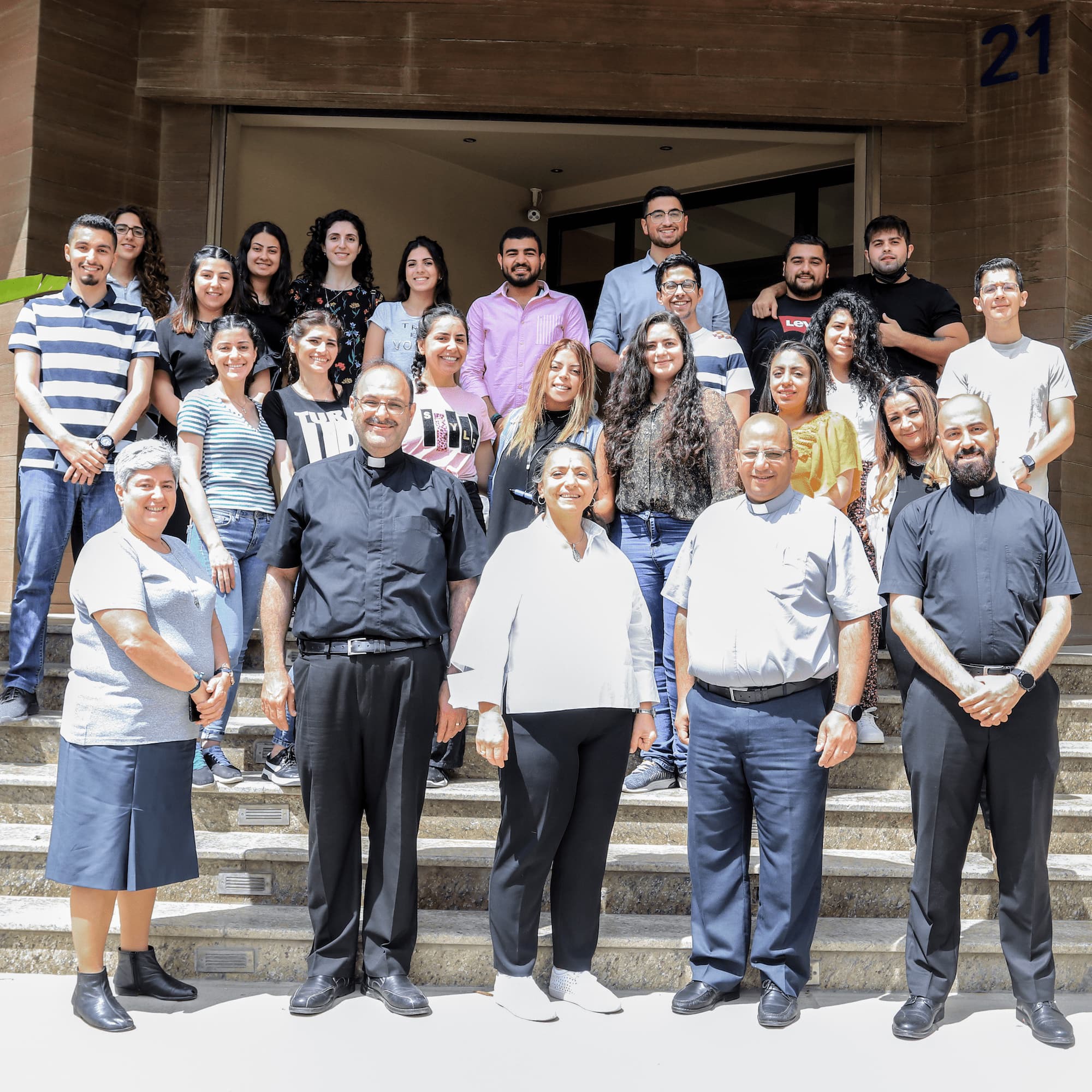Synodal process in the Middle East: Second ecumenical PRO ORIENTE youth workshop in Jordan
Together with the “We Choose Abundant Life” group, PRO ORIENTE brought together 21 young adults from Jordan, Iraq and Egypt in Madaba

Second workshop in Madaba (2022) | PRO ORIENTE
PRO ORIENTE and the ecumenical group “We choose abundant life” organized a youth workshop on synodality in Jordan at the beginning of May, in which 21 young people from different countries and churches took part. The three-day event in Madaba focused on ways to increase the involvement of young people in the church and civil society in their home countries. The women and men, aged between 18 and 28, came from Jordan, Iraq and Egypt. They belong to eight Christian churches (Roman Catholic, Melkite, Chaldean, Maronite, Syrian Orthodox, Coptic Orthodox, Anglican and Lutheran) and are involved in youth work and community life in their own churches.
Viola Raheb, who is responsible for the project on behalf of PRO ORIENTE, was also present. The workshop was the second in a series of several workshops in various countries in the Middle East. “The workshop was an important step towards more ecumenical formation and education of Christian youth in Jordan,” emphasized Raheb afterwards. The majority of the young people, and this came as a surprise to both organizers, were very committed in their own churches, but had little experience in ecumenical cooperation. For the majority, this was their first meeting in an ecumenical group.
For three days, the young people dealt with the synodal process to which Pope Francis had invited them, as well as with the document “We choose abundant life”. The document was drawn up last fall by a team of theologians and other experts and is available at https://wechooseabundantlife.com.
The young people clearly expressed a longing for ecumenical meetings and cooperation among young people. At the same time, a lack of knowledge about Christian brothers and sisters and the diversity of Christian traditions in their own country and region became apparent. The participants spoke out in favor of more cooperation between the churches, especially in view of life in a multi-religious context.
The young adults named unemployment, a fundamentally difficult economic situation, wars and conflicts, emigration, the gap between generations, social constraints, prevailing stereotypes about the “other” and a lack of personal and social rights as citizens of their country as the most important social challenges. Within the churches, the participants addressed narrow denominational constraints, weak participation of young people in church life or an outdated church and theological language. Many young people therefore also turned away from the church.
Positive balance
Viola Raheb's summary was very positive: at the beginning of the workshop, many of the participants did not see any prospects for a Christian presence in the country and the region. In the end, however, the young people confirmed that the workshop had given them hope: “Many young people want to get more involved in their own church and in ecumenical work,” said Raheb. To do this, they would need support for more ecumenical educational work and follow-up meetings in the future.
Many young adults said that the ecumenical encounter during the workshop had been very enriching. One young woman, for example, emphasized: “I was able to change my preconceived ideas and recognize the richness of meeting and working together with other brothers and sisters in faith.” A young man added: “Experiencing the living faith within an ecumenical group, listening to songs from the different church traditions and praying and singing together was strengthening and gave hope.”
The participants' joint closing plea: “If we want to set out together as a synodal church, we first need to know who our brothers and sisters are, what their theology, tradition and practice are. Together, we can better meet the challenges and develop options for action.”
Workshops in the Middle East
In total, PRO ORIENTE and the “We choose abundant life” group want to bring together up to 100 young people as direct participants in their ecumenical youth project. The first workshop took place in Beirut, with further workshops to follow in Egypt, the Holy Land and Syria. In addition, some of the young people who took part in the workshops are to take part in two international conferences on synodality in Rome in November in order to bring the experiences and wishes of the youth into discussion.
In 2023, a regional training workshop is planned in Vienna, where young people from the various countries of the Middle East will be able to network and share their experiences.



